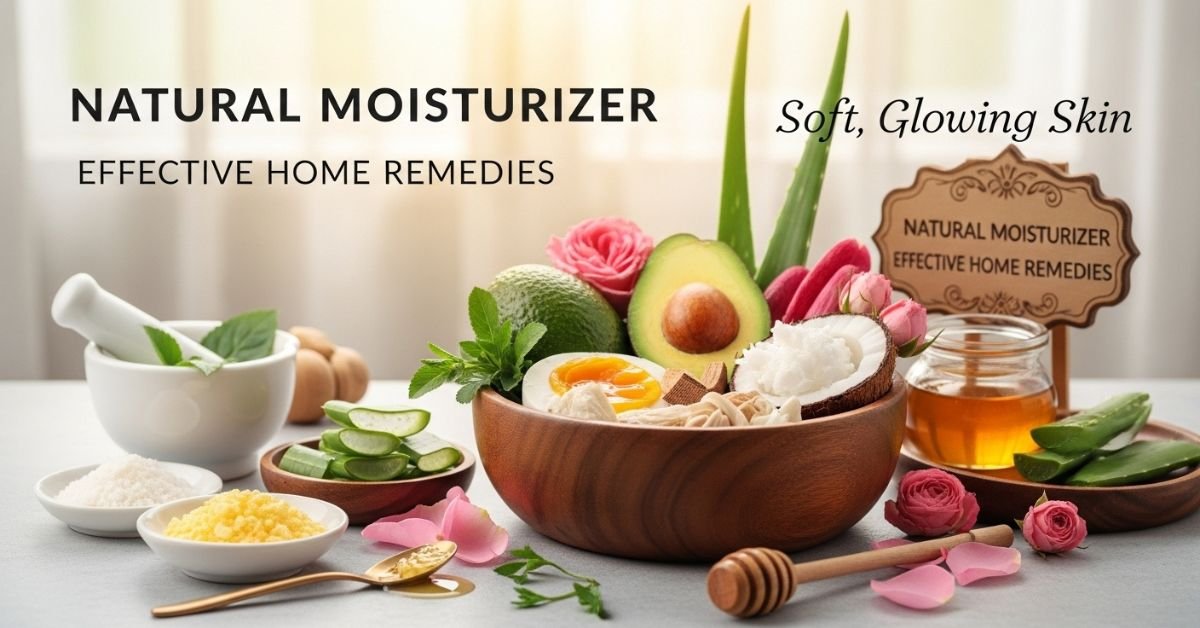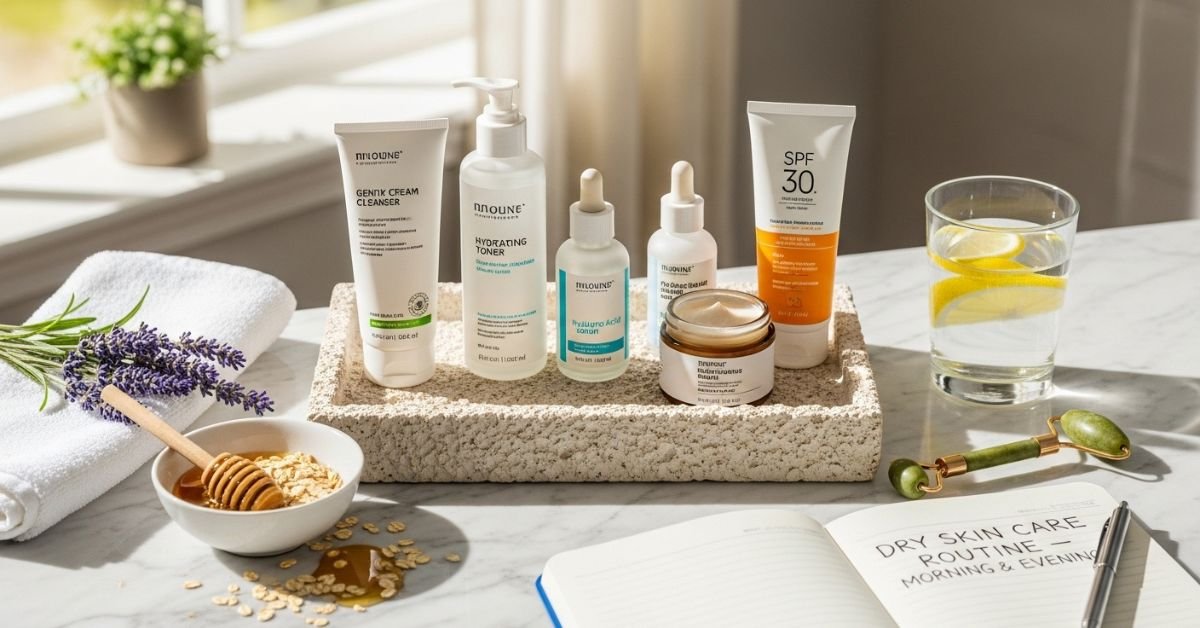Best Natural Moisturizer Effective Home Remedies for Soft, Glowing Skin
Healthy, glowing skin starts with proper hydration and care. While commercial moisturizers are widely available, natural options offer gentle, effective solutions without harsh chemicals. Best natural moisturizer remedies not only hydrate the skin but also nourish it with essential vitamins and minerals. All skin types can benefit from these safe and affordable treatments.
In this article, we’ll explore various home remedies that can help you achieve soft, supple skin naturally. From oils and butters to simple DIY masks, you’ll discover practical ways to maintain skin health and radiance.
Contents
Why Choose Natural Moisturizers
Natural moisturizers provide hydration without the risks associated with synthetic chemicals. Many commercial products contain preservatives, fragrances, or alcohols that can irritate sensitive skin. Natural options, on the other hand, are gentle and often contain beneficial nutrients.
Benefits of Using Natural Ingredients
Using natural moisturizers regularly offers several advantages:
- Gentle on Skin: They are less likely to cause allergies or irritation.
- Rich in Nutrients: Vitamins, antioxidants, and fatty acids abound in ingredients like honey, aloe vera, and coconut oil.
- Eco-Friendly: Homemade or natural products are environmentally sustainable and reduce plastic usage.
Natural moisturizers can also improve skin texture, restore elasticity, and help reduce signs of aging. Regular use helps maintain the skin’s moisture barrier, preventing dryness, flakiness, and irritation.
Comparison with Commercial Products
While commercial creams promise quick results, they often include artificial fragrances and chemicals that may not be suitable for long-term use. Natural remedies, in contrast, provide lasting hydration and nourishment without compromising skin health. Moreover, they can be customized based on your skin type, whether oily, dry, or combination.
Top Natural Moisturizers You Can Use at Home
Using natural ingredients at home is both simple and effective. Here are some of the best natural moisturizers to try:
Coconut Oil
Fatty acids included in coconut oil provide the skin with deep nourishment and hydration. It works well as a daily moisturiser and is perfect for dry or sensitive skin. Applying a thin layer after a shower locks in moisture and keeps the skin soft throughout the day.
Aloe Vera
Aloe vera gel is hydrating and soothing, making it perfect for irritated or sun-exposed skin. Its anti-inflammatory properties also help reduce redness and minor skin irritations. The smoothness and elasticity of skin can be greatly enhanced by applying fresh aloe gel every day.
Honey
Honey attracts moisture to the skin since it is a natural humectant. It also has antibacterial properties, which help keep the skin clean and healthy. Use it as a mask or mix with yogurt for extra nourishment.
Shea Butter
Vitamins A and E, which are abundant in shea butter, aid in the healing of dry or injured skin. Its creamy texture melts on contact, providing deep hydration. It’s especially beneficial during colder months when skin tends to dry out faster.
DIY Moisturizing Masks
Homemade masks are easy to prepare and highly effective. Here are a few tried-and-tested recipes:
Avocado and Honey Mask
Mash half an avocado and mix with one tablespoon of honey. After 15 to 20 minutes of application, wash your face with lukewarm water. This mask is rich in antioxidants and helps restore skin softness.
Yogurt and Oatmeal Mask
Mix two tablespoons of yogurt with one tablespoon of ground oatmeal. Apply the mixture to your skin for 15 minutes and rinse off. Yogurt provides lactic acid to exfoliate gently, while oatmeal soothes and hydrates.
Banana and Olive Oil Mask
Mash one ripe banana and mix with a teaspoon of olive oil. Apply to the skin for 20 minutes. Bananas contain vitamins and minerals that nourish the skin, while olive oil locks in moisture.
Tips for Maintaining Soft, Hydrated Skin
Consistent care is key to soft and healthy skin. Along with natural moisturizers, follow these tips:
Stay Hydrated
Drinking enough water daily helps maintain skin moisture from within. Hydration supports elasticity and prevents dryness.
Gentle Cleansing
Use mild, natural cleansers to avoid stripping your skin of its natural oils. Over-washing can lead to dryness and irritation.
Balanced Diet
Include foods rich in omega-3 fatty acids, vitamins, and antioxidants. Healthy fats from nuts, seeds, and fish support the skin’s natural barrier and moisture retention.
Regular Exfoliation
To get rid of dead skin cells, gently exfoliate once or twice a week. This allows natural moisturizers to penetrate better and improve skin texture.
Actionable FAQs About Natural Moisturizers
Q1: Can natural moisturizers work for oily skin?
Yes. Ingredients like aloe vera, honey, and yogurt are lightweight and non-greasy, making them suitable for oily skin.
Q2: How often should I apply a natural moisturizer?
For best results, apply daily after cleansing or showering. Overnight masks can also provide extra hydration.
Q3: Are there side effects of using natural ingredients?
Most natural ingredients are safe, but it’s recommended to do a patch test to check for allergies, especially with nuts or oils.
Q4: Can I mix different natural ingredients together?
Absolutely. Combining ingredients like honey and avocado or yogurt and oatmeal enhances their moisturizing properties.
Q5: How long does it take to see results?
With consistent use, you can notice softer, smoother skin in 1-2 weeks.
Final Thoughts
Using natural moisturizers is an effective way to achieve soft, healthy skin without relying on chemical-laden products. Ingredients like coconut oil, aloe vera, honey, and shea butter provide hydration, nourishment, and protection. Homemade masks and regular skincare practices enhance these benefits further, ensuring skin remains supple, radiant, and well-nourished.
By incorporating these effective home remedies into your daily routine, you can maintain naturally soft skin while avoiding unnecessary additives.













Post Comment